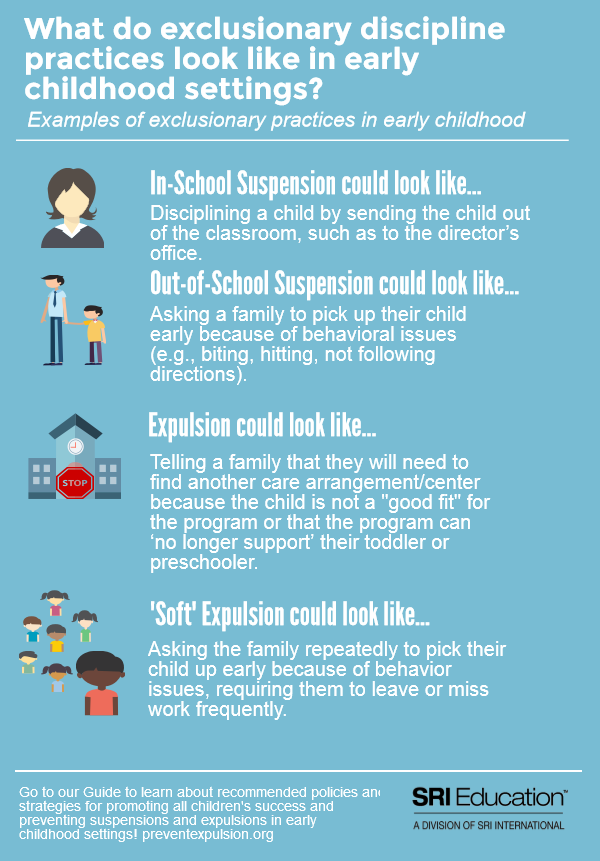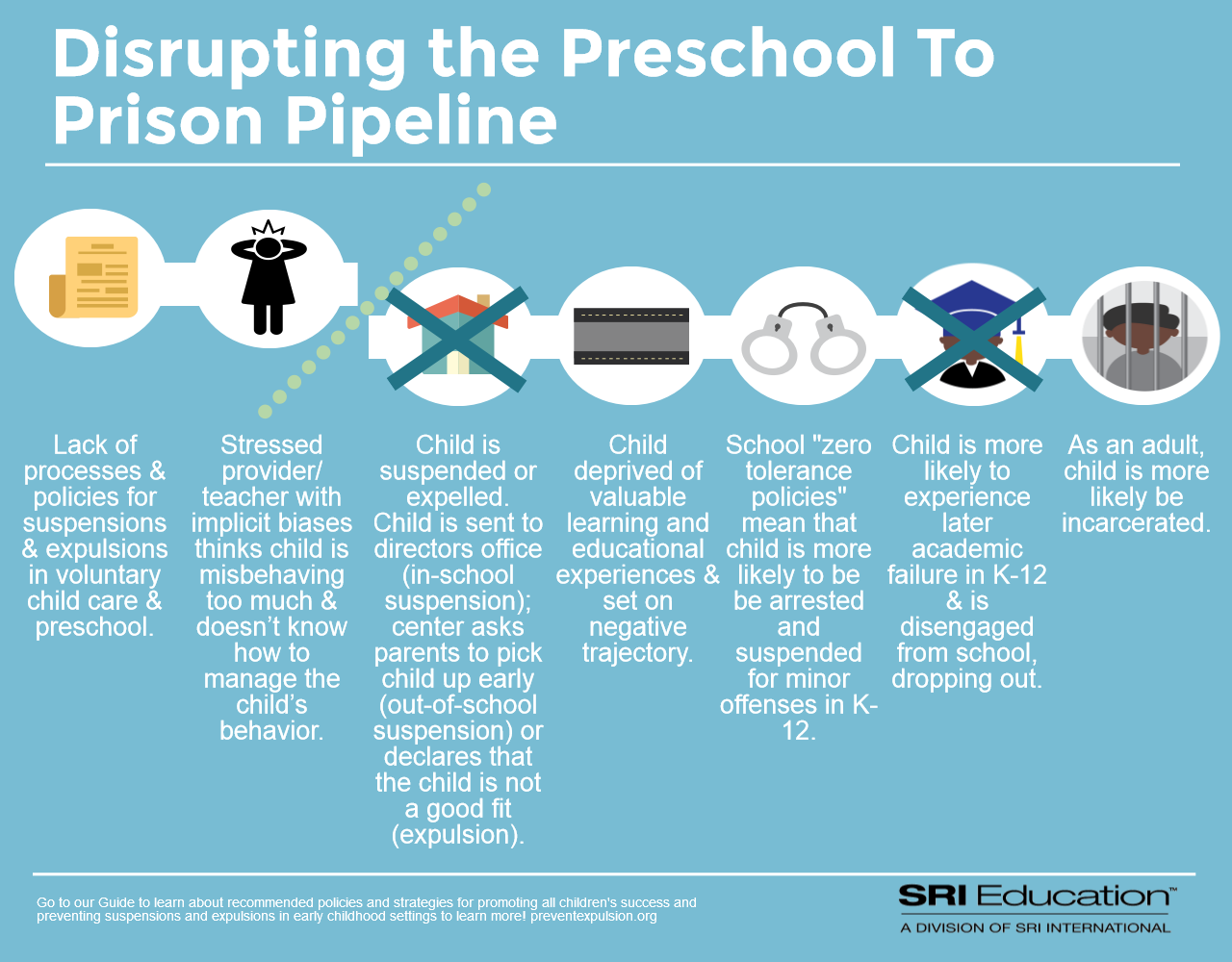
Did you know that infants, toddlers and preschool children can be – and often are – suspended or expelled from child care and preschool? Even though developmental scientists agree that these are not developmentally appropriate practices for our youngest children, recent data shows that exclusionary practices take place at a much higher rate in early childhood settings than in K-12 education.
In fact, young children (under 5 years old) are expelled from state-funded preschools at 3 times the rate of K-12 students,[1] and private and community child care programs expel children at more than 13 times the rate of K-12 students.[2] Even infants and toddlers are at high risk for child care expulsion. One statewide study in Illinois found that 42 percent of infant/toddler care centers reported at least one expulsion in the past year.[3]
To support positive change on this critical issue, researchers at SRI Education, a division of SRI International, have created an interactive guide with set of recommended policies and practices to support early education program leaders in reducing and preventing suspensions and expulsions.
“Preventing Suspensions and Expulsions in Early Childhood Settings: Program Leader’s Guide to Supporting All Children’s Success” was supported by an expert panel of senior advisors, national experts, and educators, and informed by the most recent research on how to eliminate suspensions and expulsions. The guide provides effective alternatives and relevant, specific recommended policies and practices that are actionable and address the underlying root causes. Using the interactive guide, program leaders can find resources on supporting social-emotional development, reducing challenging behavior, recognizing the role of cultural differences and implicit biases.
In addition, the practice guide includes a self-assessment to help program leaders reflect on their own policies and practices, and prioritize which recommended policies and practices are most necessary and timely to implement. The results of the self-assessment provide a roadmap to navigating the practice guide.
The guide is intended for those most likely to make an impact with a great need for resources: early education program leaders in center-based settings who implement policies and procedures and promote practices; however, anyone seeking to learn more about strategies for eliminating suspension and expulsion in early childhood settings can benefit from using the guide.

As we take a deeper look into exclusionary discipline practices, the statistics reveal an alarming story that is disproportionately applied to age, gender, and race. Children of color, specifically African American boys, are suspended and/or expelled more often than other children.[1] Despite several studies showing that racial disparities are not explained by children’s behavior, African American children, especially boys, are consistently subject to harsher discipline for similar behaviors as their peers.[4] When children miss educational opportunities because of exclusionary practices, they are at higher risks of disengagement and diminished educational opportunities.[5] Many scholars have suggested such disproportionate trends promote a “preschool-to- prison” pipeline where young boys and girls are put on a tumultuous track that increases their risk for academic failure, absenteeism, and even incarceration.[6]
Taken together with mounting research, evidence continues to stress the importance of early learning opportunities to a child’s development and future success.
To learn more about our projects or how to work with us, please contact us at studentbehaviorblog@sri.com!
[1] Prekindergarteners left behind: Expulsion rates in state prekindergarten systems
[2] Prekindergarten expulsion and suspension: Rates and predictors in one state
[4] Changes in Exclusionary Discipline Rates and Disciplinary Disproportionality over Time
[5] Point of entry: The preschool-to-prison pipeline
[6] The effect of education on crime: Evidence from prison inmates, arrests, and self-reports
Topics: Early childhood Externalizing behaviors Social-emotional learning
Tags: Disciplinary practices Expulsions/suspensions Prekindergarten/preschool
